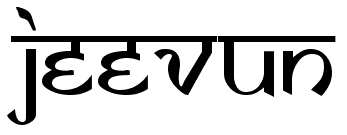I recently had the honor of giving a presentation on the topic of Diwali for a social group at work. Today being Diwali I thought it might be okay if I share some repackaged thoughts from that talk with you. Will you be ok with the fact that I am posting at the end of the day, into the next? After all, it isn’t Diwali on Pluto yet.
No recent discussion in 2020 takes place without mentioning the Covid pandemic. A year ago around this time I was in Ludhiana, Punjab, the city of my birth in India. I was lucky enough to watch the locals celebrate the festival as a communal event, and of course participate. This year the celebration programs are virtual, the parties are on zoom video, and the fireworks don’t seem as sparkly. The food may be takeout too.
Diwali is India’s most well known cultural festival export. In the past, I have spoken of unique characteristics that define the Indian culture, or presented on small tidbits of history that tie India to the US. I have presented on cultural aspects of India for a better understanding for my colleagues. This time I focused on something different. As some of you may know, prime numbers play a role in Indian/Vedic religion. There are concepts worth contemplating in
2 Atman and Paramatman
3 Brahma, Vishnu, and Mahesh (Trinity)
5 Panchānga (Hindu calendar, 5 parts)
7 Saptrishi (seven sages in ancient Vedic texts)
9 Navgraha (nine planets as represented in Hinduism)
These may readily lend themselves to some numerology contemplations. For this post the one I want to focus on is duality. The most basal duality in Hindu philosophy is that of atman (soul) and Paramatman (Godhead). This idea of duality can also be applied to many simpler aspects of life. Often in day to day activity, we undertake countless actions using the fundamental construct of me and not me. We are aware of ourselves and of others. Similarly, at a group level we think of our group as ‘us’ and anyone not in our identified group as ‘them’ or ‘others.’
In the recent years our social fabric has been stressed by many unfortunate and often avoidable events, which when examined bring to light how the notion of ‘us’ and ‘them’ can be manipulated toward negative outcomes. But even when the intent is not negative, we are pretty good at recognizing people in our midst who appear to be different on account of their culture.
At the same time, should we find ourselves in a faraway land, even a sliver of our own culture can bring much joy to our heart, be it a football fan of our team or someone who celebrates the same festivals. We experience duality in observing our culture and recognizing the culture that is not ours.
Diwali, the festival of lights, is traditionally recognized as celebration of good overcoming evil, a duality. It is a nationwide human experience with countless sources of illumination, be they oil lamps or electric lights, and it is celebrated on what is a dark, moonless night in Oct-Nov of each year. While Rama was the symbol for a measured and responsible life, Ravana represented what happens when we abdicate our social contract despite the knowledge of what it entails and why it exists.
We are all capable of recognizing someone from our culture and someone from another culture. It is ok to exercise the basal human reaction of us/not us. But at the same time, we have a social responsibility, the duality in this recognition. We may celebrate our culture but we must also celebrate the ideas of other cultures. There is joy of familiarity in recognizing our own. But there is joy of discovery in celebration of new cultures. Most of us would not pick one joy over another but would want to experience both instead. Surely many people of Indian subcontinent origin have tales of their experiences in the US as a function of their culture. At the same time, non-Indians will have similar experiences to share in encountering people who arrive from other cultures. As we invite others to celebrate our culture with us, we must also be open to their invitations for us to celebrate them. At a personal level we can reach out to each other to share these stories and strengthen our bonds.
Variety, when harnessed, brings a new meaning to our experiences. Ultimately, when we step back far enough we see that all the cultures are really different colors of the same spectrum, the human culture. We must seek the best in others and share our best with them. That is the not so secret strength of what makes this country strong and beautiful.
I always enjoy the fact that Diwali is one of the earliest events in the end of the year holiday season, a kick off of sorts. And then we get to enjoy several other holidays from various cultures.
It has been a tough year but I hope you will find yourself surrounded by love and understanding on this day and all other days. May the light of Diwali stay with you through the entire holiday season. And may you find a way to make up for the virtual events and get some great food along the way, social distancing applicable as needed of course. Stay safe and be well.
Namaste.
P.S. The photo is from my trip to India. On the night of Diwali in one of the neighborhoods, people from each nearby home bring some of their light, an oil lamp, for the community offerings, usually near a temple. This was a new thing for me.

